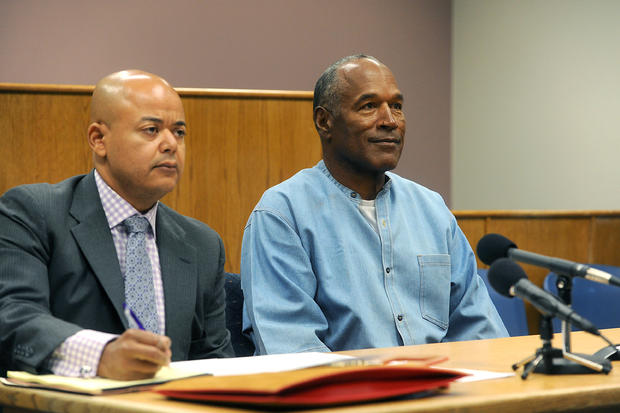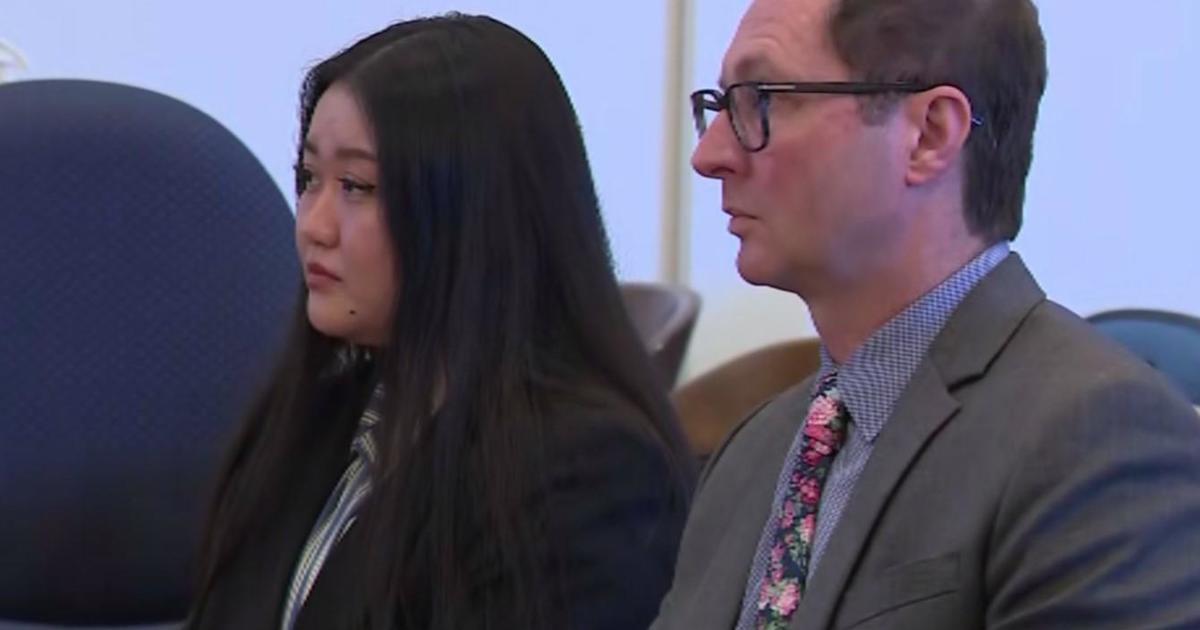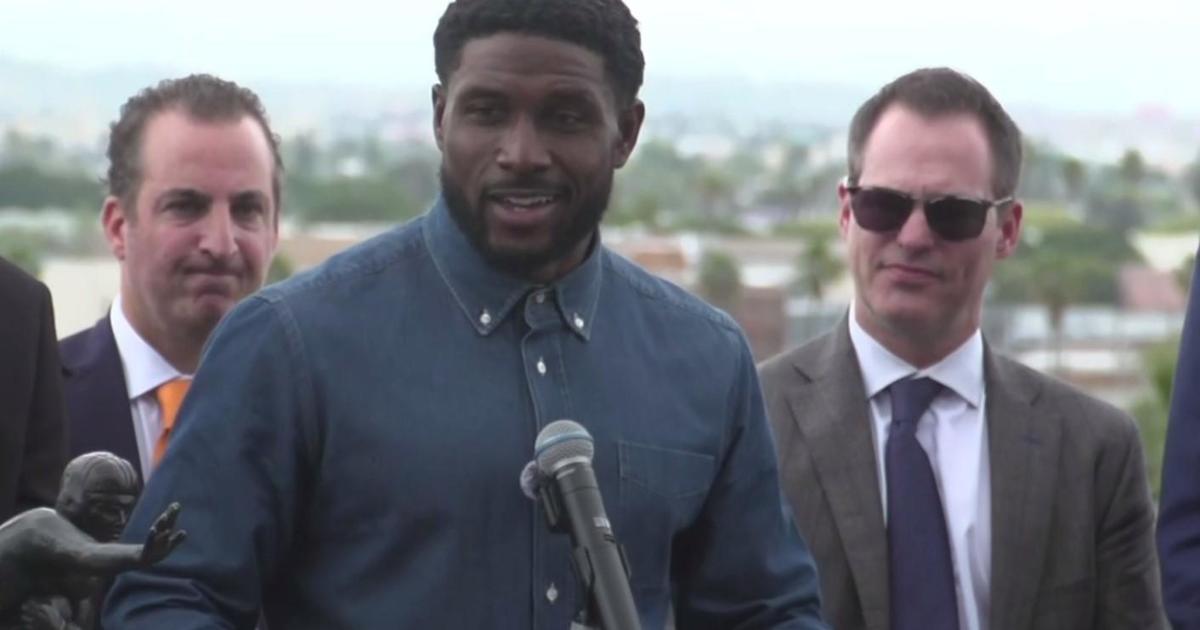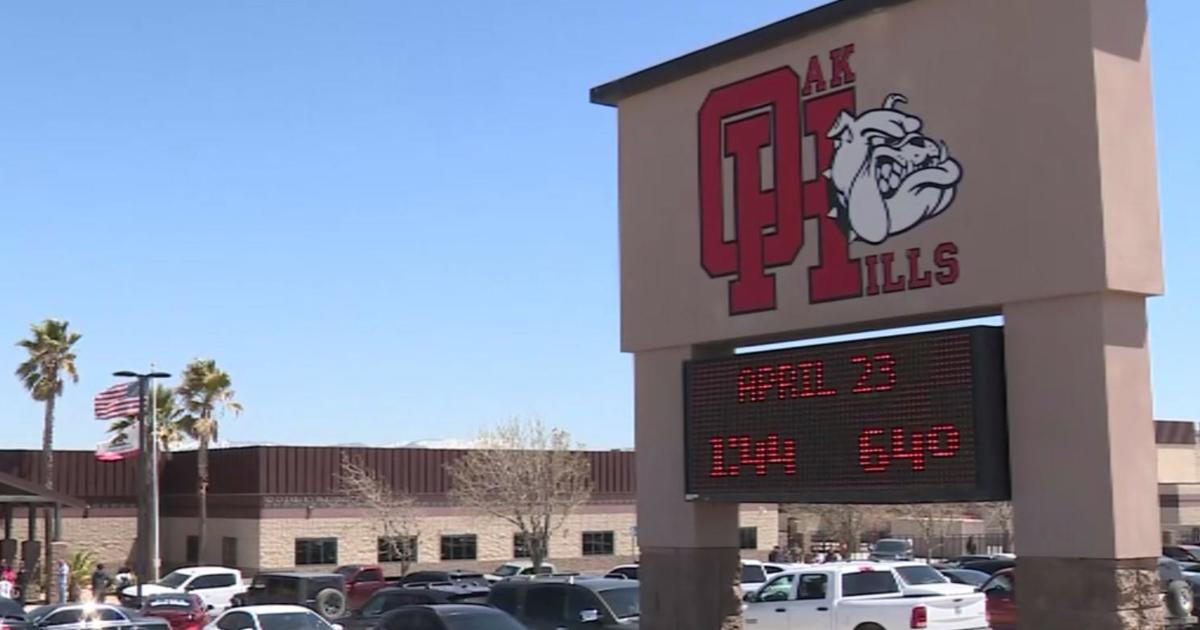OJ Simpson Granted Parole: 'I Am Sorry'
LOVELOCK, Nev. (AP) — O.J. Simpson was granted parole Thursday after more than eight years in prison for a Las Vegas hotel heist, successfully making his case in a nationally televised hearing that reflected America's enduring fascination with the former football star.
Simpson, 70, could be a free man as early as Oct. 1. By then, he will have served the minimum of his nine-to-33-year armed-robbery sentence for a bungled attempt to snatch sports memorabilia and other mementos he claimed had been stolen from him.
He got the four votes he needed from the parole commissioners who heard his case. In agreeing to release him, they cited his lack of a prior conviction, the low risk he might commit another crime, his community support and his release plans.
During the more than hour-long hearing, Simpson forcefully insisted — as he has all along — that he was only trying to retrieve items that belonged to him and never meant to hurt anyone. He said he never pointed a gun at anyone nor made any threats during the crime.
"I've done my time. I've done it as well and respectfully as I think anybody can," he said.
Inmate No. 1027820 made his plea for freedom in a stark hearing room at the Lovelock Correctional Center in rural Nevada as four parole commissioners in Carson City, a two-hour drive away, questioned him via video.
LATEST COVERAGE: O.J. Simpson Gets Parole
Simpson, gray-haired but looking trimmer than he has in recent years, walked briskly into the hearing room dressed in jeans, a light-blue prison-issue shirt and sneakers. He laughed at one point as the parole board chairwoman mistakenly gave his age as 90.
The Hall of Fame athlete's chances of winning release were considered good, given similar cases and Simpson's model behavior behind bars. His defenders have argued, too, that his sentence was out of proportion to the crime and that he was being punished for the two murders he was acquitted of during his 1995 "Trial of the Century" in Los Angeles, the stabbings of ex-wife Nicole Brown Simpson and her friend Ronald Goldman.
Before the hearing concluded, one of the dealers Simpson robbed, Bruce Fromong, said the former football great never pointed a gun at him during the confrontation, adding that it was one of the men with him who did so. Fromong said Simpson deserved to be released.
"He is a good man. He made a mistake," Fromong said, adding the two remain friends.
Simpson's eldest child, 48-year-old Arnelle Simpson, also testified on his behalf, saying her father is not perfect but realizes what a mistake he made and has spent years paying for it.
"We just want him to come home, we really do," she said.
Simpson said that he has spent his time in prison mentoring fellow inmates, often keeping others out of trouble, and believes he has become a better person during those years.
Asked if he was confident he could stay out of trouble if he's released, Simpson replied that he learned much during an alternative-to-violence course he took in prison and that in any case he has always gotten along well with people.
"I had basically spent a conflict-free life," he said — a remark that lit up social media with scornful and sarcastic comments given the murder case and a raft of allegations he abused his wife.
In a final statement to the board he apologized again.
"I'm sorry it happened, I'm sorry, Nevada," he said. "I thought I was glad to get my stuff back, but it just wasn't worth it. It wasn't worth it and I'm sorry."
Several major TV networks and cable channels carried the proceedings live, just as some of them did two decades ago during the Ford Bronco chase that ended in Simpson's arrest, and again when the jury in the murder case came back with its verdict.
Simpson said if released he plans to return to Florida, where he was living before his incarceration.
"I could easily stay in Nevada, but I don't think you guys want me here," he joked at one point.
"No comment, sir," one of the parole board members said.
An electrifying running back dubbed "The Juice," Simpson won the Heisman Trophy as the nation's best college football player in 1968 and went on to become one of the NFL's all-time greats.
The handsome and charismatic athlete was also a "Monday Night Football" commentator, sprinted through airports in Hertz rental-car commercials and built a Hollywood career with roles in the "Naked Gun" comedies and other movies.
All of that came crashing down with his arrest in the 1994 slayings and his trial, a gavel-to-gavel live-TV sensation that transfixed viewers with its testimony about the bloody glove that didn't fit and stirred furious debate over racist police, celebrity justice and cameras in the courtroom.
Last year, the case proved to be compelling TV all over again with the ESPN documentary "O.J.: Made in America" and the award-winning FX miniseries "The People v. O.J. Simpson: American Crime Story."
In 1997, Simpson was found liable in civil court for the two killings and ordered to pay $33.5 million to survivors, including his children and the Goldman family.
Then a decade later, he and five accomplices — two with guns — stormed a hotel room and seized photos, plaques and signed balls, some of which never belonged to Simpson, from two sports memorabilia dealers.
Simpson was convicted in 2008, and the long prison sentence brought a measure of satisfaction to some of those who thought he got away with murder.
(© Copyright 2017 The Associated Press. All Rights Reserved. This material may not be published, broadcast, rewritten or redistributed.)




